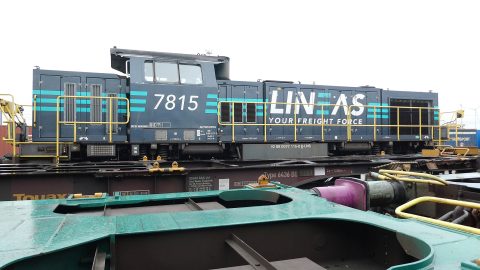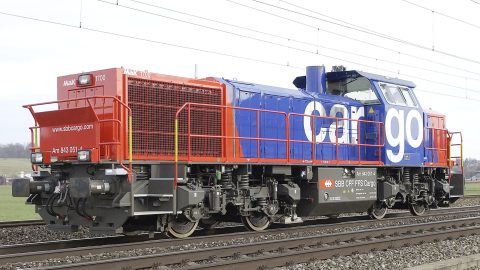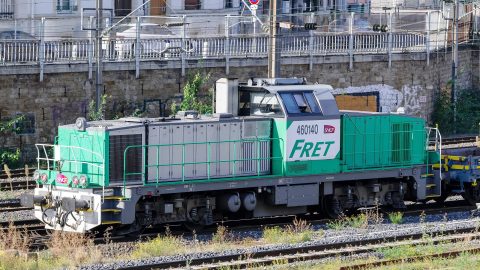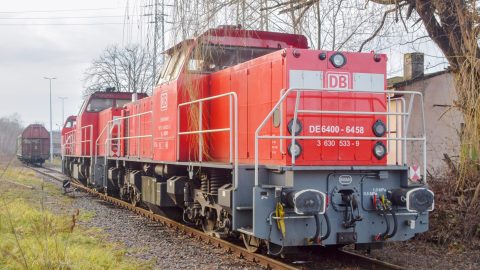Rail freight operators in Europe are performing very differently. Big names such as DB Cargo and Lineas are in trouble, but in Poland, the annual figures were an invitation to uncork the champagne bottle.
Despite the call for more sustainability in logistics and transport, freight transport by rail is not always an attractive modality for shippers in reality. In Germany, frequent strikes have forced much transport to come to a standstill. In Poland, research by Poland’s Office of Rail Transport (UTK) shows that road transport transports four times more goods than rail. And due to the liberalisation of the railways, more and more private parties are entering the market and capital injections are needed to keep large railway parties going.
In addition, energy prices skyrocketed by almost 200 per cent for the sector between 2018 and 2022, causing many shippers to switch back to road transport. This series of problems fuels fears of a further ‘reverse modal shift’. Rail freight carriers achieve varying results in these turbulent circumstances. Here is an overview of the ‘winners and losers,’ of which the latter group is clearly the largest.
PKP Cargo up by 32%
Despite road transport dominating the transport sector in Poland, Poland remains optimistic about the competitiveness of rail. For example, the second largest rail carrier in Europe, PKP Cargo, reported a 32 per cent increase in EBITDA. This amounts to almost 200 million euros. With a net profit of approximately 23 million, the company absorbed the 2022 loss last year, which then amounted to approximately 1 million euros. This happened despite a decline in volumes (-16 per cent) and performance in tonne-kilometres (-18 per cent).
Lineas loses in several areas

Lineas describes itself as the largest private rail freight operator in Europe. In 2023, the railway company made a loss of 39.5 million euros on a turnover of 479 million. In 2022, the loss was 100 million euros. The company currently has a total debt burden of more than 300 million euros. However, last year, the Belgian state increased its share in Lineas from 10 per cent to 45 per cent through the government fund SFPIM.
Last year, the fund, together with another shareholder, Argos Wityu, invested 20 million in the company to get it back on track financially. Lineas needed 100 million euros at the time. These two parties are now jointly investing another 30 million in the company. By converting bonds into capital, Lineas will receive a new capital injection of approximately 60 million euros in 2024. To get out of the red at the end of the year, the rail carrier still has to look for an investor with 50 million euros in their pocket.
Less freight and red figures for SBB Cargo

The Swiss SBB Cargo performed disappointingly and, to make matters worse, also recorded a financial loss. The company had a loss of 3.9 per cent freight tonne-kilometres in the period of 2022-2023. According to the most recent figures, the company made a loss of almost 191 million euros in 2022, almost 80 per cent of the total loss of parent company SBB in 2022. The year before, there was a loss of ‘only’ 1.2 million. According to the company, the huge difference was partly due to the loss of COVID support and a significant write-down of 130.5 million euros on the value of SBB Cargo.
Rail Logistics Europe: no loss, no win

Rail Logistics Europe, a subsidiary of the French state railways, made a profit last year but lost in other areas. Rail Logistics Europe includes Fret SNCF, which was initially fined 5 billion euros by the EU last year. This is because the carrier received that amount in illegal state aid between 2007 and 2019, according to the EU. In an agreement with the EU and the French state, the railway company was forced to abandon twenty freight transport routes instead of the 5 billion euro fine. Last year’s EBITDA of 128 million euros was cold comfort for the company.
Relegation for DB Cargo

DB Cargo is threatening to follow Fret SNCF’s footsteps because the EU recently launched a new investigation to see whether the state aid to the company should be considered market distortion. DB Cargo has suffered losses of more than three billion euros in recent years. In 2023, losses amounted to more than 500 million euros. To cover the losses, the German government invests around 300 million euros into the company every year. These losses are not visible at the Dutch subsidiary thanks to a generous settlement system of the German parent. DB Cargo NL reported a declining volume, from 21 to 20 million tons, and had a significant drop to 4,180 million train kilometres, but the most recent figures still show a profit of 2.5 million euros.
Also read: